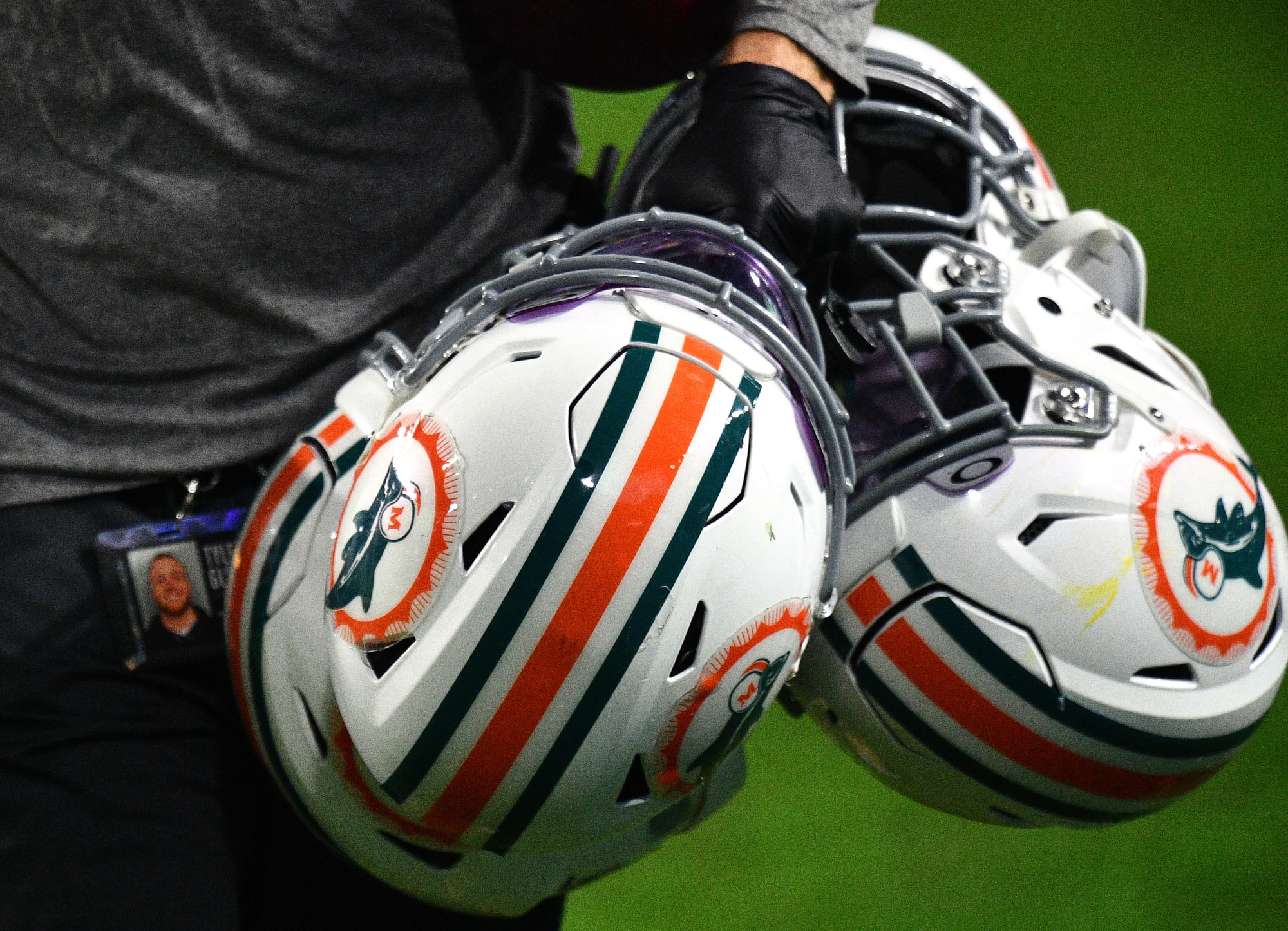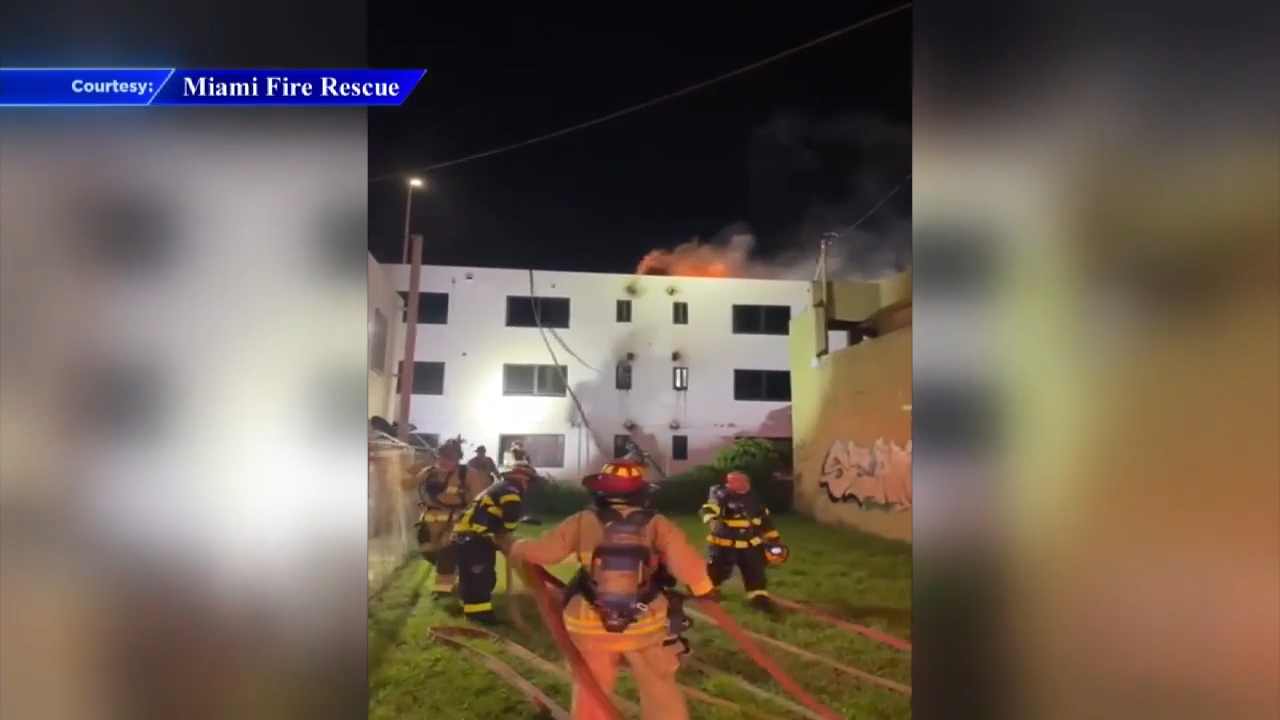The Nuggets are better than the Heat, but Miami doesn’t care
The Heat players are fighters, and they scrap with their minds and skills as much as their physicality. The Nuggets may be taller and more versatile, longer and more explosive. They may have Nikola Jokic, the best player in the world currently. But as Miami showed during a 111-108 road victory Sunday in Game 2 to even the series, such logic means nothing.
The Milwaukee Bucks and Boston Celtics were better. The New York Knicks had a stronger regular season. Yet as the No. 8 seed, the Heat made their knees buckle anyway. When Spoelstra dismissed the Mile High City altitude and said his team would play Denver “at the top of Everest,” he wasn’t just being clever. Miami lives to scale everything. The higher it must go, the easier it breathes.
When they’re right, the Nuggets put on a show. The Heat simply play harder for longer. This is where performance and competition aren’t compatible.
After Game 1, it seemed liked Denver presented too many mismatches and too much athleticism. The most reactionary observers predicted a short series. The Heat relaxed and figured the Nuggets had done little besides hold serve at home. It entered Ball Arena for Game 2 confident that it could absorb more punches and deliver its own.
“I just think nobody cares on our team,” forward Jimmy Butler said. “We’re not worried about what anybody thinks. We’re so focused in on what we do well and who we are as a group that at the end of the day, that’s what we fall back on. Make or miss shots, we’re going to be who we are because we’re not worried about anybody else. That’s how it’s been all year long, and that’s not going to change.
“So that’s what I think it is. I think it’s the ‘I don’t give a damn’ factor.”
By now, the Heat’s story is so repetitive that Spoelstra has lost most of his awe when talking about it. Fifty-four of Miami’s 82 games during the regular season qualified as clutch games, meaning the margin was within five points with five or fewer minutes remaining. Spend two-thirds of the time clawing, with wild lineup variations because of injuries and cloudy playoff prospects, and it will make or expose a team.
The Heat won 32 of those close games, the most in the NBA. It won just over 59 percent of them, which ranked sixth. In the postseason, it’s combined all those experiences and become an impossible team to kill. There was no chance losing Game 1 would faze it. The Heat also wasn’t going to fall apart after Denver answered its hot start Sunday with a second-quarter onslaught.
Miami persists, always. Earlier in the playoffs, Butler deserved most of the credit for his team’s relentlessness. But the Heat tied the series without Butler shining. He made 7 of 19 shots Sunday. He influenced the game with nine assists, 21 tough points and solid defense against Denver guard Jamal Murray, who missed a three-pointer with 1.2 seconds left that would have sent the game to overtime.
It was a solid look that came out of a discombobulated offensive set. Denver Coach Michael Malone should have called a timeout, and now the Nuggets are preparing for Game 3 with an understanding that Miami will test all of their advantages. Because it plays such smart basketball, the Heat will also probe the Nuggets’ weaknesses to test their resolve.
Most concerning for the Nuggets is that Miami has taken away their hammer: the fourth quarter. Entering the Finals, Denver had displayed championship-caliber efficiency in putting teams away. But so far, the Heat has outscored the Nuggets by 21 points in the fourth quarter.
“When it comes down to the wire, we are strangely comfortable,” said Miami guard Gabe Vincent, who had 23 points.
Vincent made four of the Heat’s 17 three-pointers. It made just under 50 percent of those long jumpers, exploiting Denver’s inability to rotate properly. Max Strus recovered from a frigid Game 1. Duncan Robinson flourished late. Kevin Love, who started after not playing in the opener, grabbed 10 rebounds and gave Bam Adebayo (21 points, nine rebounds) a partner in the post.
Jokic had to carry the Nuggets, and though a 41-point, 11-rebound performance was another awe-inspiring stat line, he uncharacteristically had more turnovers (five) than assists (four). Besides a few scoring flurries from Murray, and Aaron Gordon playing off his teammates, the offense was stagnant. Michael Porter Jr., who has missed 17 of 24 field goal attempts in the series, is trying to do too much on offense and making poor defensive decisions off the ball.
The Nuggets should be the team that has more answers, more ways it can win games. On Sunday, the Heat started peppering them with questions, and they froze.
“We’re going to have to outwork Miami,” Malone said, angry with his team’s effort. “Our discipline is going to have to be off the charts.”
Denver isn’t undefeated at home anymore this postseason. It isn’t playing at a consistent fast pace. Miami plays at different speeds and dares teams to think through constant strategy tweaks on both ends.
Superior talent disrupts the Heat often. But it keeps coming. It’s now recorded a playoff record-tying seven double-digit comeback victories.
“We faced a lot of adversity during the season,” Spoelstra said. “We handled it the right way where you are not making excuses about it — the injuries, the changing lineups. Because of all that adversity and the close games that happened, due to a lot of that, it hardened us. It steeled us, and we developed some grit, which is what we all want. We want to be able to have that privilege of having adversity and being able to overcome it. You gain strength from that.”
The Heat doesn’t have to be better than the Nuggets to get the best of them. The Heat has enough. It trusts it is enough.
Within those four lines, the fight just got real.



